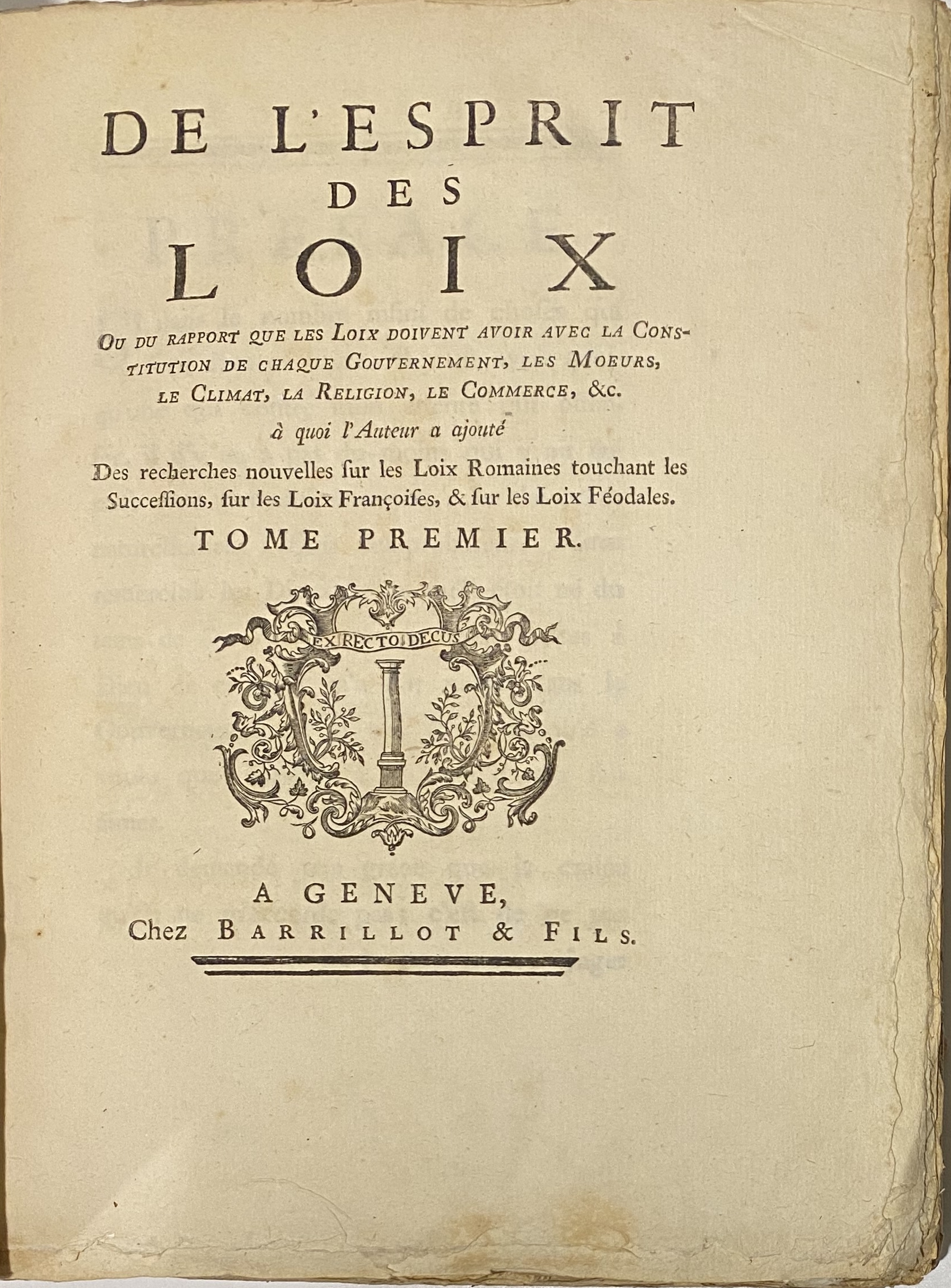landmark of political philosophy and inspiration for the Founding Fathers
MONTESQUIEU, CHARLES de SECONDAT, Baron de. De l’Esprit des Loix
Geneva: Barrillot, [1748]
4to. Complete with both half-titles and both errata leaves. Two volumes. Contemporary quarter calf, tan morocco labels, marbled boards, untrimmed. Some rubbing, occasional light dampstaining, mainly marginal, one joint slightly worn. A near fine copy.
First edition of The Spirit of the Laws, one of the most influential works of political philosophy of the eighteenth century.
Montesquieu was the greatest theorist of the separation of powers and of checks and balances in government. To achieve good government and liberty, he called for a tripartite division of powers separating the creation, enforcement, and interpretation of laws in separate branches operating in a system of checks and balances on one another. He warned, “There is no greater tyranny than that which is perpetrated under the shield of the law and in the name of justice.”
Montesquieu’s ideas profoundly influenced the Founding Fathers. James Madison described him as “the celebrated Montesquieu” in The Federalist. “The United States Constitution in particular is a lasting tribute to the principles he advocated” (PMM).
“One of the noblest monuments of genius, [The Spirit of the Laws] had a more powerful and beneficial influence over public opinion than any work of last century, the Wealth of Nations only excepted” (McCulloch). John Maynard Keyes declared, “Montesquieu was the real French equivalent of Adam Smith. The greatest of your economists, head and shoulders above the Physiocrats in penetration, clear-headedness and good sense.”
“The real importance of the Esprit des Lois . . . [is that it is] an assemblage of the most fertile, original and inspiriting views of legal and political subjects, put in language of singular suggestiveness and vigour, illustrated by examples which are always apt and luminous, permeated by the spirit of temperate and tolerant desire for human improvement and happiness, and almost unique in its entire freedom at once from doctrinarism, from visionary enthusiasm, from egotism, and from an undue spirit of system” (Saintsbury).
This is an excellent untrimmed copy in original unrestored condition.
Printing and the Mind of Man 197. En Francais dans le Texte 138. Tchmerzine VIII, 459a.
$35,000



